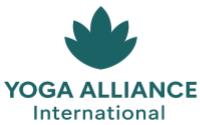Recognition for Yoga Teachers and Schools Based on Skills, Experience, and Training — Not Bureaucracy.
 Yoga Teacher Certification in Canada: Complete Guide
Yoga Teacher Certification in Canada: Complete Guide
Yoga changes lives and careers. You want clarity before investing time and money. This guide gives you that clarity today. It explains how certification works in Canada. It names the main credentials and registries. It shows how to choose the best program. It compares formats, costs, and timelines. It outlines insurance and legal basics. It also maps real career paths and income. The focus stays on 2025 realities. The writing uses plain, active language. Each section gives practical steps you can use. You will finish with a confident plan. You can then enroll with fewer doubts. Yoga Teacher Certification in Canada: Complete Guide [2025].
What “Certification” Really Means in Canada
Canada does not license yoga teachers by law. Yoga teaching is generally unregulated nationwide. Provinces do not issue yoga teaching licenses. Private organizations set most training standards instead. Studios and insurers then adopt those standards. People often confuse registrations and certifications. A registry lists teachers who meet set criteria. A certification verifies you completed specific training. Schools issue training certificates after assessments. Registries accept those certificates for membership. Studios check both items when hiring teachers. Insurers also check those items for coverage. Most studios expect a 200 hour certificate. Many prefer a 300 hour or 500 hour total. Some schools bundle 200 and 300 together. They call that a 500 hour pathway. Quality matters more than hour counts alone. Clear assessments improve skill and safety. Supervised practicums matter for confidence and readiness. References from mentors can help new teachers. Canada also values inclusive and trauma aware approaches. Accessibility and ethics remain hiring priorities today. Always confirm local insurer requirements before enrolling. Verify which associations they recognize this year. Ask studios which credentials they prefer now. Choose recognized pathways that match your goals.
The Main Credentials and Registries You Will See
You will see several common labels in Canada. “200 hour” remains the baseline teacher training. “300 hour” builds advanced skills and depth. “500 hour” signifies 200 plus 300 combined. These labels describe total training hours completed. They do not guarantee identical curricula everywhere. Content and assessment vary by school and faculty. You will also see registry acronyms online. “RYT” means “Registered Yoga Teacher.” That status comes from membership in a registry. Registries verify hours and code compliance. They do not replace a government license. Canada also has Canadian associations for yoga. Some insurers accept Canadian associations for coverage. Some insurers also accept international registries. Acceptance depends on underwriters and policy updates. Always confirm recognition with your target insurer. Ask which associations they accept for 2025. Save those answers in writing for your records. Check studio preferences in your city as well. Some studios recruit from specific programs locally. Others value practical teaching auditions most. Strong portfolios can offset less known brands. Teach community classes to build that portfolio. Gather reviews and mentor references early. Keep a log of teaching hours and trainings. That log supports future registry upgrades and roles.
How to Choose the Right Program for You
Start with your career goal and timeline. Do you want part time teaching locally? Do you want full time teaching quickly? Do you want a niche like prenatal? Your goal guides format and depth choices. Check the school’s lead trainers and mentors. Review their teaching hours and specialties. Look for diverse bodies and abilities in demos. Seek trauma aware and inclusive language throughout. Read the syllabus and assessment details carefully. You need clear rubrics and feedback loops. Look for live teaching practice with coaching. Observe how they grade teaching safety skills. Confirm small group sizes for practicums. Ask about real student exposure during training. Verify post graduation support and mentoring. Job coaching helps you land classes faster. Ask for audition prep and resume templates. Request sample class plans and sequences. Confirm business and ethics modules are included. Marketing and taxes also deserve clear coverage. Speak with recent graduates by phone. Ask how many now teach paid classes. Visit live classes from faculty before enrolling. Notice classroom energy and clarity. Ensure you respect the lead trainer’s style. Fit matters more than brand hype online. Choose a program that matches your values.
Formats in 2025: In-Person, Hybrid, and Online
All formats can work when designed well. In person builds community and accountability. You get immediate form corrections and support. You also practice hands on adjustments safely. Travel and schedules can limit that access. Hybrid blends live weekends with online learning. You retain community and reduce travel costs. You can study theory at flexible times. Practicums still happen with live coaching. Online programs now offer strong outcomes. Look for live Zoom labs and feedback. Demand small group teaching drills each week. Require multi camera demos and angles. Good online schools record sessions for review. They track practice hours transparently and fairly. They still assess anatomy and cueing live. They still require capstone classes for graduation. They also place you in teaching pods. Pods deliver practice and peer support weekly. Insurers often accept high quality online programs. Studios also accept them when auditions shine. Ask your target studios about format preferences. Record a strong teaching reel for applications. Show clear cues and inclusive options on video. Keep lighting and audio clean and steady. Format matters less than skill proof today. Choose the format you will finish well.
Costs, Scholarships, and Return on Investment
Tuition varies by city and school. Expect broad ranges across Canada. Urban programs often cost more overall. Intensive formats sometimes bundle lodging deals. Hybrid formats can reduce travel costs significantly. Ask about materials and exam fees upfront. Ask about make up day fees and policies. Confirm deposit terms and refund timelines. Read payment plan interest details carefully. Many schools offer partial scholarships yearly. Some offer equity based bursaries for access. Some provide work study or assistant roles. Ask early and apply with clear purpose. Budget for props, insurance, and membership fees. Budget for CPR or first aid certifications. Budget for demo reels and headshots. Map your break even timeline realistically now. New teachers often build hours gradually. Expect part time income in early months. Aim for diversified revenue streams over time. Private clients can pay higher rates. Corporate and community contracts can help. Workshops and series add valuable income. Online classes can reach remote students. Retreats can add profitable peaks yearly. Clear business skills improve outcomes quickly. Track expenses and revenue from day one. Use basic spreadsheets and invoice tools responsibly.
Insurance, Legal Basics, and Professional Ethics
Insurance protects teachers, studios, and students. Most insurers want proof of training hours. Many want a recognized association or registry. Requirements vary by underwriter and year. Always confirm coverage terms before teaching. Keep your policy and certificate accessible. Renew on time and keep records organized. Studios may ask to be additional insured. Ask your broker how to add those endorsements. Keep incident reports for any concerns. Use consent based touch policies always. Offer verbal and visual consent choices. Provide clear options for non touch practices. Respect privacy and boundaries at all times. Follow your scope of practice precisely. Do not offer medical diagnosis or treatment. Refer clients to clinical providers when needed. Maintain a professional code of conduct. Protect data under privacy regulations today. Store waivers and forms securely and safely. Use plain language in all agreements. Keep safety top of mind in every class. Screen students before intensive practices. Offer modifications and props generously. Tailor sequences to the stated level honestly. Close each session with clear debrief prompts. Encourage feedback and questions every time. Ethics build trust and long term careers.
Careers, Hiring, and Building a Sustainable Path
Most teachers begin with community classes. They also sub for busy studio schedules. Auditions determine many early opportunities. Prepare a tight fifteen minute audition set. Lead with breath, safety, and clarity always. Show inclusive options without shaming anyone. Keep tempo and transitions smooth throughout. Close on time with a stable finish. Bring a simple, clean teaching resume. Include hours, mentors, and specialties. Add a link to your demo reel. Add a link to a short class sample. Follow up with a warm, concise note. Thank the team for their time. Ask for feedback after decisions are final. Stack classes in nearby locations if possible. Reduce commute time and cost each week. Offer themed series for curiosity and depth. Design a beginner friendly on ramp pathway. Build a referral network with allied pros. Think physios, counselors, and massage therapists. Build simple packages for private clients. Use intake forms and clear goals always. Track outcomes and testimonials respectfully. Create a small mailing list for updates. Share consistent tips and class news monthly. Keep content helpful and honest online. Sustainable careers come from steady systems.
Conclusion: Yoga Teacher Certification in Canada: Complete Guide
You now understand how certification works here. Canada uses training certificates and registries together. Studios and insurers check both items closely. Your next step is simple and clear. Define your goal and timeline today. Confirm insurer and studio preferences in writing. Choose a format you can finish well. Verify assessments and mentoring in the program. Budget for costs and early income steps. Build a simple business system from day one. Keep ethics and safety as daily anchors. You can enter this field with confidence. You can build a steady and humane career. Yoga Teacher Certification in Canada: Complete Guide [2025].

